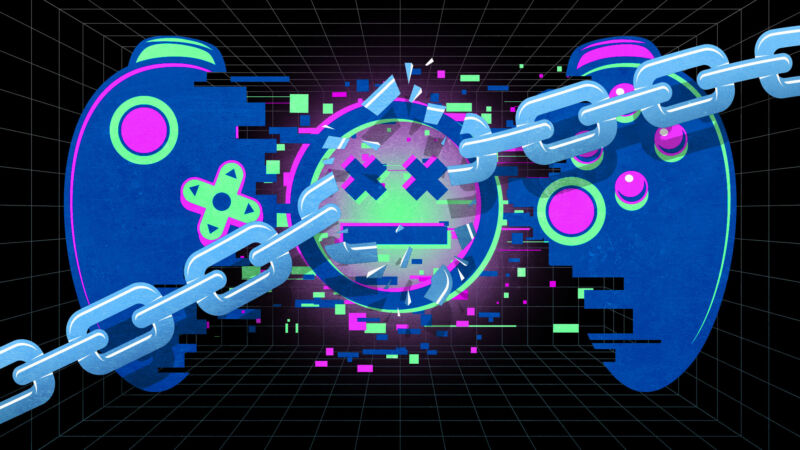 Cyberpunk 2077 may well be the most-hyped videogame of all time. It will be released in two days’ time and for hundreds of thousands of gaming fans, those 48 hours can’t be over soon enough so they can empty their wallets.
Cyberpunk 2077 may well be the most-hyped videogame of all time. It will be released in two days’ time and for hundreds of thousands of gaming fans, those 48 hours can’t be over soon enough so they can empty their wallets.
Of course, piracy is always a risk, yet after a herculean development cycle utilizing hundreds of workers to put together what developer CD Projekt Red hopes will be its most successful title, the company will throw itself to the wolves by selling the game without copy protection.
While that is likely to please many gamers and the anti-DRM movement, the decision must have companies like Ubisoft, who seem to love Denuvo, scratching their heads. But CD Projekt Red isn’t throwing all caution to the wind.
Cyberpunk 2077: Meet Denuvo
During the past couple of days, reviewers lucky enough to have received an advance copy of Cyberpunk 2077 have been publishing their early opinions. Inevitable bugs aside, the majority seem to have been impressed by the scale and ambition of the game, something which will please fans and the developer alike.
However, news that those copies had Denuvo copy protection embedded had some observers doing a quick double-take. Denuvo? In Cyberpunk 2077? A mistake, surely?
To better understand why this revelation caused alarm, it’s useful to take a look at CD Projekt’s historical attitudes towards DRM. In addition to its development work, the company also owns GOG , a digital distribution platform for video games and video.
Unlike similar services, GOG forces no DRM on its customers, something that has earned it a unique place in many gamers’ hearts. In addition, GOG and CD Projekt are behind the FCKDRM ‘movement’ which highlights the numerous downsides to DRM while promoting DRM-free sources.
With slogans like “You bought it, you own it” and “Don’t hand your rights over to corporations that wouldn’t trust you,” FCKDRM is a truth-teller when it comes to DRM and DRM-like systems. The fact is that many games these days could one day refuse to run in the absence of an Internet connection, or could be assigned to history on the whim of a publisher.
In common with all gamers, GOG and FCKDRM believe that shouldn’t be the case.
So Why Has CD Projekt Turned to Denuvo?
It’s important to note that the official release of Cyberpunk 2077 will not have Denuvo, it’s only the free review copies that are affected. Nevertheless, some feel that the company should have shied away from DRM altogether since this clashes with the stated principles of CD Projekt/GOG/FCKDRM. Those people are completely wrong and the decision to use Denuvo, in this case, makes complete sense.
From a technical perspective, Denuvo does what it claims to do. It protects games in the important days and weeks following launch, making it a perfect candidate to prevent early piracy of Cyberpunk 2077. However, and perhaps more importantly, what CD Projekt is trying to avoid here is the possibility that its game leaks out on to the Internet before launch .
On day one of release, Cyberpunk 2077 will be a sitting duck for pirates. With no DRM, CD Projekt is putting its faith in its ability to convince people to buy the game and not pirate it. To quote company co-founder Marcin Iwiński, “We cannot force people to buy things. We can only convince them to do it. We totally believe in the carrot, not in the stick.”
And this is the key point. Until December 10 arrives, no one will be able to buy this game. The developers may have already convinced hundreds of thousands of gamers to buy Cyberpunk 2077 and not pirate it, but if there’s a pre-release leak, all bets are off.
Essentially, CD Projekt will have relied on the goodwill of fans and their belief that rejecting DRM is a good thing, and then found themselves beaten, not just by pirates, but by the fact they will be unable to compete for consumption of their own product. For a pro-consumer company, that can never be right.
Using Denuvo In *FREE* Review Copies Betrays Nobody
Anyone who closely followed the GOG/FCKDRM campaign will have understood its focus. The philosophy of the entire project was to highlight the negative effects that DRM (including systems like Denuvo) can have on consumers. Things like ‘kill switches’, systems that prevent users from modifying game files, and requirements for players to continually prove ownership.
While Denuvo arguably contains all of these to some extent, not a single line of Denuvo code will make it to a legitimate copy of Cyberpunk 2077 installed on the machine of a regular PC gamer. In this respect, CD Projekt will have kept every promise it’s ever made.
In much the same way they secure their company servers from hackers intent on grabbing content they have no right to access, its use of Denuvo in Cyberpunk 2077 in review copies is merely an extension of that, not a betrayal of its principles.
What the developer is saying, it appears, is that it believes it has obtained enough trust from players to invest in its creation, but it will never trust pirates intent on leaking its product before launch. And that stance, regardless of what anyone might say, is the smartest and most pragmatic possible under the circumstances.
From: TF , for the latest news on copyright battles, piracy and more.
 chevron_right
chevron_right


